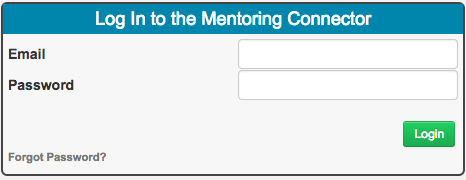Dr. Art Stukas: A risky strategy for a mentoring program to choose
Art Stukas, Ph.D. is Senior Lecturer at La Trobe University in Australia. He and his colleagues (Gil Clary and Mark Snyder) have been studying volunteer motivations and have conducted a series of studies testing their “Functional Approach to Volunteerism” and have made significant contributions to our understanding of volunteer practice.
Although it may seem tempting to offer rewards and incentives to encourage volunteers to take up mentoring or to persist with it through difficult times — after all, everybody seems to benefit — this is a risky strategy for a mentoring program to choose. A basic psychological principle, with more than forty years of research support, suggests that external pressures, be they rewards, requirements, or other social influences, can reduce intrinsic interest and motivation for activities. Providing expected and tangible rewards (like money) for engaging in or completing a task that was initially interesting can reduce willingness to engage freely in the task subsequently as well as later intrinsic interest. Mentors may come to ask “why would I do this if I don’t get paid?” So, programs that offer compensation may decrease the pool of potential mentors who would volunteer freely — leading to the necessity of every program having to pay its mentors (if you take this argument to its logical conclusion). Worse yet, if mentors begin to perceive that this is an activity that requires compensation in order to entice people to get involved, then youth too may begin to think that their mentors are only there for the money and not for more altruistic reasons, which could have damaging effects on the relationship and its outcomes.
Involving university students in mentoring through their academic studies also seems like a good idea, because the benefits available to participants in community service are well documented. However, universities that make service a requirement may find that their programs backfire if students feel coerced into participating. Gil Clary, Mark Snyder, and I examined the effects of required service-learning programs, finding that students who perceived the requirements to be more controlling were less likely to intend to volunteer in the future. The undermining of self-perceptions of autonomy, an important human need according to psychological theory, can result from both requirements and the presence of tangible rewards and this may help to explain future failures to act. As such, we recommended that programs that required students to volunteer should also give them the flexibility to choose their own ways of meeting the requirement, such as a choice of organizations or activities. Recent research has confirmed that autonomously chosen prosocial behaviors, as opposed to those performed for more extrinsic reasons, are associated with both greater well-being for volunteers and better outcomes for recipients of their help. Mentoring programs that add compensation may end up undermining the motivation and performance of their mentors, as well as the outcomes that their programs can deliver. Focusing on the less tangible benefits that mentoring can provide (such as opportunities to act on important values, feel good about oneself, or gain a greater understanding of the world or social issues), may prove a wiser way to recruit mentors and to maintain their commitment.










